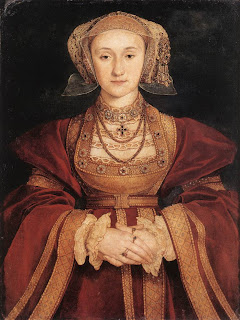There is a replica of a stained glass window from the 1300s in a church in Hamelin, (the original was destroyed) that shows a large group of children following a man in multi-colored clothing playing a flute. The inscription below, which is from the 1300s reads:
In the year of 1284, on John's and Paul's day
was the 26th of June.
By a piper, dressed in all kind of colors,
130 children born in Hamelin were seduced
and lost at the calvarie near the koppen.
So, the meaning of Calvarie or Calvary is really unknown. It is speculated that it was a place of execution. But, as Calvary (the hill where Christ was crucified) was also called Golgotha, or the place of the skull, and koppen means head, it could have been a skull or head shaped hill. What really happened to the children of Hamelin remains a mystery. There are many stories and theories, for instance some scholars propose that the phrase "children of Hamelin" is figurative and does not mean children in the literal sense, but means people who were born in Hamelin. These same scholars think that possibly a person trying to recruit peasants to colonize the eastern block, and present day Romania came through the town and talked many of the people into leaving. As people at the time generally did not leave their home village, this was a strange and traumatic event for those left behind.
Another theory is that a disease, not unlike the black plague swept through the village, killing many of the children and elderly, who would have been the weakest. In the middle ages, (so I read) death was often portrayed wearing multi-colored clothing, so this theory would make sense as far as the figure in the picture in the stained glass window. Although to be honest, I was hard pressed to find such an image of death when I searched.
A third theory poses the idea that this story is about the children's crusade, which actually happened in 1212. This odd and frightening event started with a boy named Stephen of Cloyes claimed that Christ had personally given him a letter for the king and that he was to lead a crusade of children to the Holy Land to recover the Holy Sepulchure. The boy must have been very charismatic because thousands of children followed him. This happened in France and also in Germany, but was led there by a boy named Nicholas. These children eventually made it to port cities and were sold into slavery if they did not die on the way. Over 30,000 children went on these "crusades" and never returned home. It is a frightening example of the instability and zeal of adolescents and the strength of mob mentality. You can read more about the Children's Crusade here: http://www.middle-ages.org.uk/the-childrens-crusade.htm
It is always possible that these children were led away by some strange deviant who killed them, but such a large number is unlikely. Of course, one must remember Michael Jackson and Neverland Ranch, a children's paradise created by a very strange and charismatic man...so it is entirely possible. Never the less, The Pied Piper remains a fairy tale mystery. In 1284 something very bad happened in the town of Hamelin, but unless some new primary source is found, we will most likely never know exactly what that thing was.
Sources:
http://www.wisegeek.com/is-the-pied-piper-of-hamelin-based-on-an-actual-event.htm
http://www.straightdope.com/columns/read/2060/was-the-pied-piper-of-hamelin-a-child-molester
http://www.forteantimes.com/features/articles/3805/the_lost_children_of_hamelin.html
http://www.associatedcontent.com/article/410409/the_legend_of_the_pied_piper_all_fiction.html?cat=37






